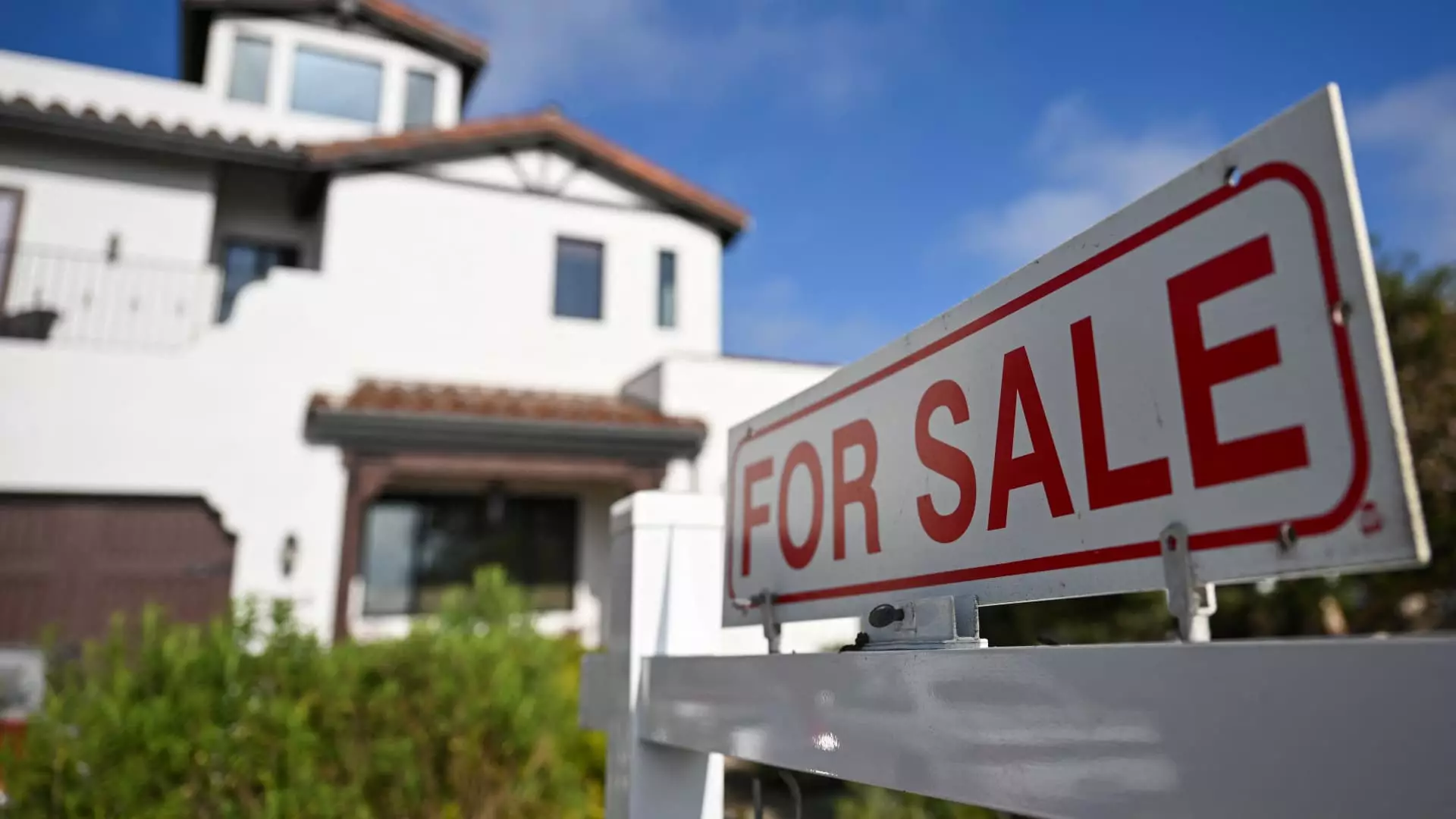In recent weeks, the mortgage rates have experienced a sudden surge, prompting a noticeable decline in demand from homebuyers and current homeowners seeking to refinance. According to data derived from the Mortgage Bankers Association, mortgage application volume witnessed a substantial decrease of 5.1% compared to the previous week. This decline is emblematic of the struggle within the housing market, as rising interest rates dissuade new investments and refinancing activity. The 30-year fixed mortgage rates, specifically for conforming loans up to $766,550, ascended to 6.36% this past week, up from 6.14%, which reflects the highest level since August.
Economic Indicators and Mortgage Rate Fluctuations
The underlying reason for this upward trend in mortgage rates can be traced back to robust economic indicators, particularly highlighted by the recent job report released in September. Mike Fratantoni, the chief economist at the Mortgage Bankers Association, pointed out that enhanced economic performance tends to burden borrowers with higher rate expectations. As potential homebuyers become wary of escalating costs, the refinancing market also took a hit, experiencing a 9% fall in applications during the week, even though they remained significantly up—by 159%—in comparison to the same week last year.
The dynamics of interest rates undeniably influence consumer behavior. Last year, when mortgage rates stood at 131 basis points higher, homeowners were more motivated to refinance when rates dipped. However, the current situation poses a dilemma; while rates are lower than a year prior, escalating home prices coupled with constrained inventory in the affordable market segment create a challenging atmosphere for buyers.
Flat Purchase Applications Amid Economic Uncertainty
Interestingly, the demand for purchasing mortgages has shown resilience, with applications remaining nearly stagnant—reporting only a minute decline of 0.1%. In contrast, this number represents an 8% increase year-over-year. Despite this seemingly optimistic statistic, the reality is that heightened prices and limited housing stock continue to complicate the purchasing landscape. The paradox of lower mortgage rates versus increasing property costs can create a two-fold barrier for first-time buyers striving to enter the market.
In a broader context, it’s essential to keep an eye on external economic data as further releases will significantly influence mortgage rate trends. Matthew Graham, COO at Mortgage News Daily, suggests that the recent spike in rates may be stabilizing, yet any potential decrease in rates would hinge on forthcoming economic figures.
While the immediate future for mortgage applications appears challenging, especially for refinancing, there is a glimmer of hope for prospective homebuyers. Asset affordability remains a pressing concern, emphasizing the importance of policy measures that could help ease the housing cost burden. The interplay between mortgage rates, housing prices, and economic indicators will be critical to watch in the upcoming weeks, as these elements will dictate the trajectory of the housing market. Navigating these turbulent waters will require strategic insights and adaptive measures for those looking to buy or refinance in this volatile economic environment.

